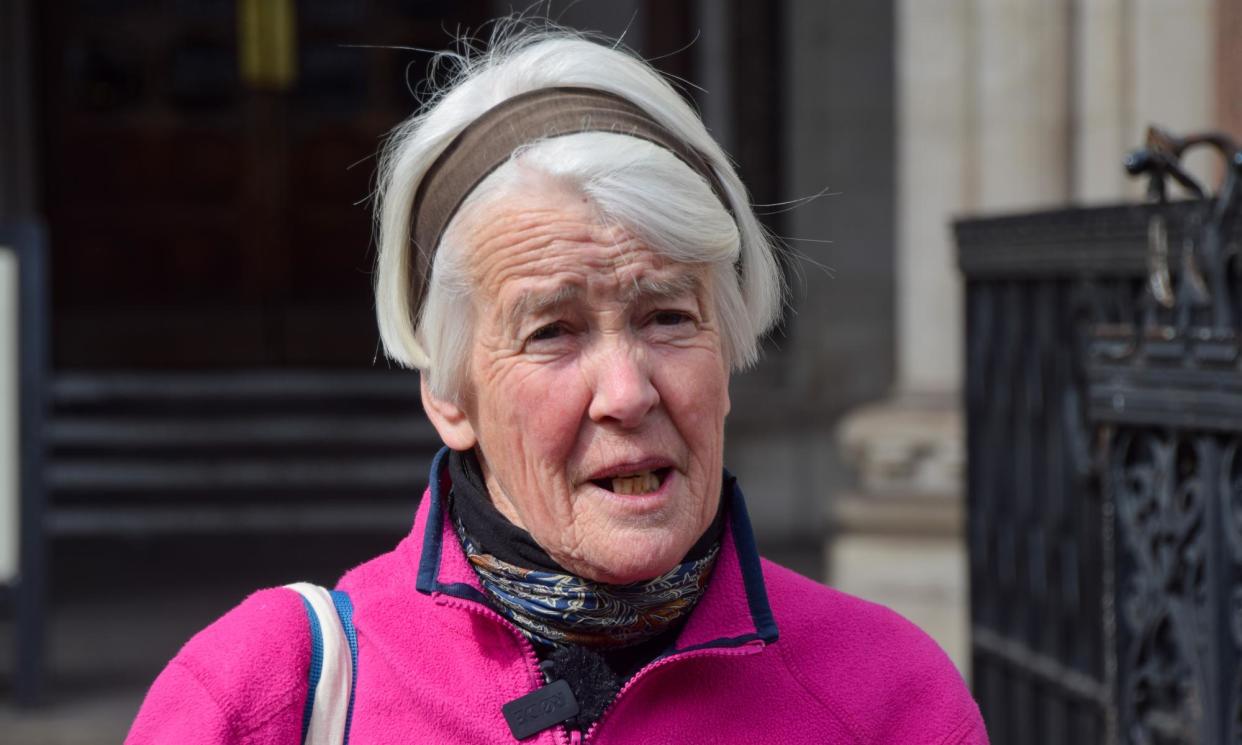Judge throws out case against UK climate activist who held sign on jurors’ rights

A high court judge has thrown out an attempt by the government’s most senior law officer to prosecute a woman for holding a placard on jury rights outside a climate trial.
Mr Justice Saini said there was no basis for a prosecution of Trudi Warner, 69, for criminal contempt for holding a placard outside the trial of climate activists that informed jurors of their right to acquit a defendant based on their conscience.
The solicitor general had argued that Warner, a retired social worker, had committed contempt by holding the sign that was read by potential jurors at the opening of the trial last April.
The judge said Warner had not harassed, impeded or even spoken to any of those entering inner London crown court last year. The sign referred to a 1670 case known as “Bushel’s case”, in which a jury refused to find defendants guilty despite a judge having instructed them to do so.
He said: “The solicitor general’s case does not disclose a reasonable basis for committal … the conduct did not amount to an act of contempt.”
The judge said: “I refuse the solicitor general permission to proceed and I dismiss the claim.”
Warner, who has waited for a year to find out if she will be prosecuted for contempt of court, said she was feeling “very relieved”.
She said: “I feel it is job done. What I was doing was drawing attention to the terrible repression of conscientious protesters, and in particular climate protesters, by the state.
“If what I did will empower other defendants to use the power to acquit by juries, this will have been the fight of my life.”
In his ruling, the judge said there was a well-established principle in law of jury equity; this was a de facto power to acquit a defendant regardless of directions from the judge. He said the principle in law had been tested in the highest courts in England and Wales, and existed in other countries such as Canada, New Zealand and the US.
Warner’s placard referred to the Bushel case, which is celebrated with a marble plaque that is clearly visible in the central criminal court in London. It read: “Jurors, you have an absolute right to acquit a defendant according to your conscience.”
Warner stood outside inner London crown court last April for 20 minutes holding the placard as members of the public, lawyers and potential jurors filed into court. She held the sign on the first day of a trial for public nuisance of members of the climate campaign group Insulate Britain.
The judge in that trial, Silas Reid, referred her action to the attorney general to consider contempt of court.
Last week, the solicitor general argued in the high court that Warner should be prosecuted for contempt for holding the sign.
Aidan Eardley KC told the court a prosecution was needed “to maintain public confidence” in the independence of the jury system and that if Warner went unpunished, similar acts were “likely to propagate”. He claimed Warner had confronted jurors outside court and her actions were an interference with the administration of justice.
Saini said in his ruling on Monday that it was accepted Warner had made no attempt to hinder, compel or even speak to those going into the court.
The decision was welcomed by supporters outside the high court. It came after the UN rapporteur on environmental defenders highlighted the repressive actions taken against climate campaigners in the UK.
Michel Forst said he was alarmed at the restrictions being placed on defendants in climate trials, which include being prevented from mentioning the words climate change or fuel poverty, or the tradition of peaceful protests embodied in the US civil rights movement.


